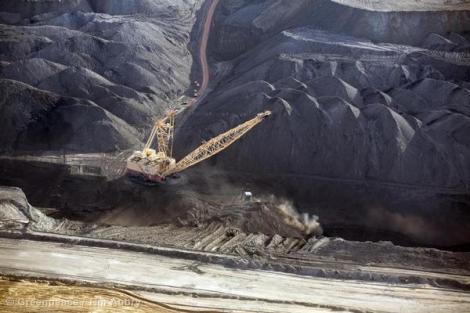A new report from the Department of Interior’s Inspector General highlights several problems with the way DOI gives taxpayer-owned coal to companies like Peabody, Arch, and Cloud Peak Energy, including flaws in the way DOI calculates fair market value (FMV) and a failure to consider increasing coal exports. The report reinforces the need for a moratorium on federal coal leasing, as outlined in a letter to Secretary Jewell on her first day in office which noted these and other concerns. The New York Times reports:
The report, the product of one of a series of investigations under way of federal coal leasing and royalty collection, indicates that significant problems remain in a program that has periodically been hit by scandal and that has not seen a serious overhaul in decades.
The study of coal leasing found that, despite rules adopted in the 1980s devised to ensure competition, more than 80 percent of sales in the past 20 years had received only one bid. The report said that the process by which the value of the leases is computed is faulty, costing the government millions. At the current rate of coal leasing, the inspector general found, every penny-a-ton undervaluation costs the taxpayers $3 million.
The report also highlights flaws with the federal coal leasing program in light of the industry’s aim to export increasing quantities of taxpayer-owned coal, noting that “It appears that several state offices overlook the export potential.” It’s hard to believe that in the midst of intense controversy around coal export proposals, the public officials responsible for giving away our coal could simply “overlook” the issue, suggesting some willful ignorance may be involved.
Indeed, the report notes that “mining companies may be aware of the BLM employees computing the FMV, and could attempt to influence those individuals.” With tens of millions of dollars to spend on lobbying, it’s a pretty safe bet Peabody knows who and how to influence the handful of bureaucrats in Montana and Wyoming responsible for secretly determining the minimum price per ton of coal that could mean a difference of tens of millions of dollars for the company.
Beyond the FMV assessments, the report highlights BLM’s weak and inconsistent enforcement mechanisms. BLM is tasked with ensuring that coal companies pay appropriate royalties and mines operate under the conditions of their lease. However, from state to state, reporting and enforcement practices vary widely, with little federal oversight. BLM investigators lack the ability to deter violations through financial penalties, and investigators “prefer to work informally with mining companies to resolve noncompliances” – hiding these violations from the same public that owns the coal these companies are exploiting for profit.
Although it identifies these and other problems with the federal coal leasing program, the report does not attempt to quantify how big of a subsidy this has amounted to for the coal industry. A report last year by the Institute for Energy Economics and Financial Analysis found that taxpayers have lost nearly $30 billion because of flaws in the way that fair market value is determined.
Of course, subsidizing coal extraction isn’t just a bad deal for taxpayers; it also undermines the use of cleaner forms of energy while risking our health and our climate. Any honest assessment of the Department of Interior’s duty to manage our coal “in the best interests of the Nation” would show that it is best left where it is, where it will keep mercury pollution out of our lakes and rivers, smog forming pollution out of our air and lungs, and carbon pollution where we need it most – locked in the ground.

Coal strip mined in the Powder River Basin of Montana and Wyoming is the source of 13% of US carbon pollution


